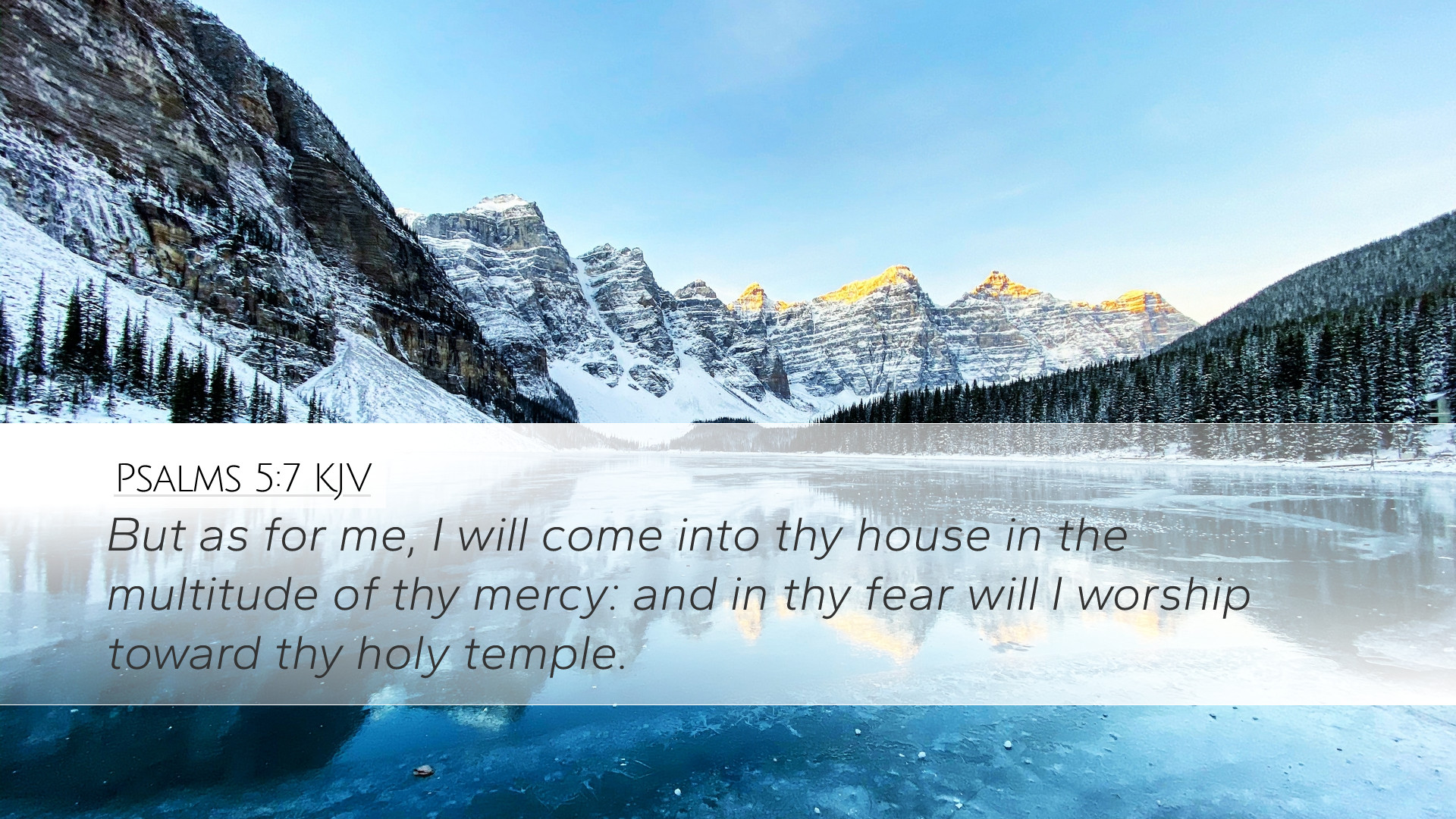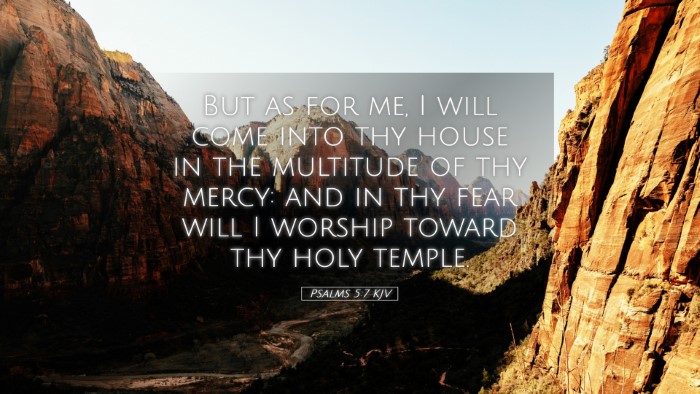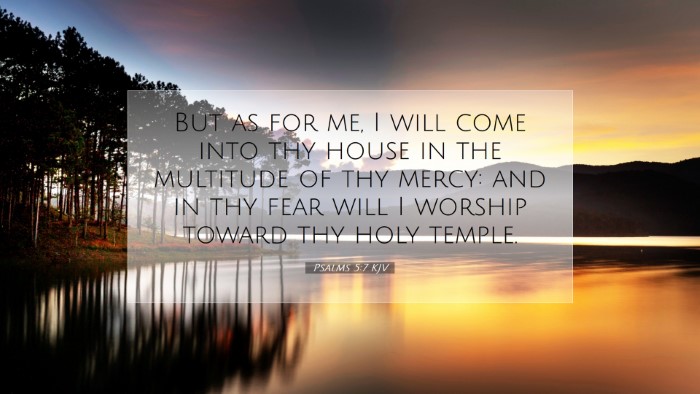Commentary on Psalms 5:7
Psalms 5:7 (KJV): "But as for me, I will come into thy house in the multitude of thy mercy: and in thy fear will I worship toward thy holy temple."
Introduction
This profound verse from the Book of Psalms encapsulates the essence of approaching God in worship and reverence. It sheds light on the psalmist's inward devotion and reliance on God's mercy amidst a backdrop of adversarial circumstances. The following commentary combines insights from various public domain commentators, framing the verse’s thematic significance for worshippers, pastors, and scholars alike.
Understanding the Context
The Psalms express a range of emotions and experiences, often reflecting a deeper relationship with God. Matthew Henry emphasizes that this Psalm reflects a time of distress for the psalmist, who feels surrounded by the wicked. The mention of God's house signifies a place of refuge, a sanctuary where believers can meet with God amidst turmoil.
Albert Barnes points out that the imagery of entering God's house invokes a sense of solemnity and serious engagement with the Divine. It illustrates a contrast between the wickedness of the world and the purity of God’s presence, highlighting the importance of the worshipper's attitude in approaching God.
The Multitude of Thy Mercy
The phrase "in the multitude of thy mercy" signifies an abundance of grace and loving-kindness that God extends to His people. Adam Clarke elaborates that this mercy is foundational for the psalmist’s approach to God, suggesting that true worship arises from an awareness of God’s forgiving nature and providential care.
- Mercy as a Precondition for Worship: The psalmist acknowledges his dependency on God’s mercy, which encourages a humble approach to worship.
- Inclusivity of God's Mercy: The term “multitude” reflects an inexhaustible treasure of God’s mercy, available to all who seek Him.
Worship in Fear
The latter part of the verse, "and in thy fear will I worship," introduces the duality of fear and reverence in the believer's relationship with God. Matthew Henry explains that "fear" here refers not to terror but to a profound respect and awe before God's holiness and majesty.
- The Nature of Sacred Fear: This fear motivates a deeper reverence in worship, acknowledging God’s sovereignty.
- Worship as a Response: True worship is characterized by a blend of love and fear, recognizing that God is both intimately involved and infinitely greater than the worshipper.
Worship Toward Thy Holy Temple
The direction of worship "toward thy holy temple" speaks volumes about posture and intention in approaching God. Albert Barnes notes that while the physical temple symbolizes God's presence, it also serves as a reminder of the spiritual sanctuary believers find in Christ.
- Symbolism of the Temple: The temple represents the place where heaven meets earth, reiterating the sanctity of God’s presence.
- Worship as Directional: The physical act of facing the temple signifies a heart that seeks to align itself with God’s will and purposes.
Implications for Today’s Believer
This verse provides profound insights for modern worshippers and church leaders. It invites pastors, theologians, and students to reflect on several key aspects:
- Approaching God: The importance of understanding and recognizing God's mercy is crucial for effective worship. This approach fosters authenticity in the believer's relationship with God.
- The Role of Reverence: Today’s worship should maintain a balance of joy and reverence, emphasizing God’s holiness while celebrating His grace.
- The Importance of the Church: As the collective body of Christ, the church stands as a modern day temple – a place where believers come together to experience God's presence.
Conclusion
In summary, Psalms 5:7 invites believers to approach God with humility, gratitude, and awe. Combined insights from the commentaries remind us that genuine worship is rooted in our understanding of God's profound mercy and holiness. As we continue to study this passage, let it ignite a deeper passion for worship among pastors, theologians, and all who seek to draw near to God.


